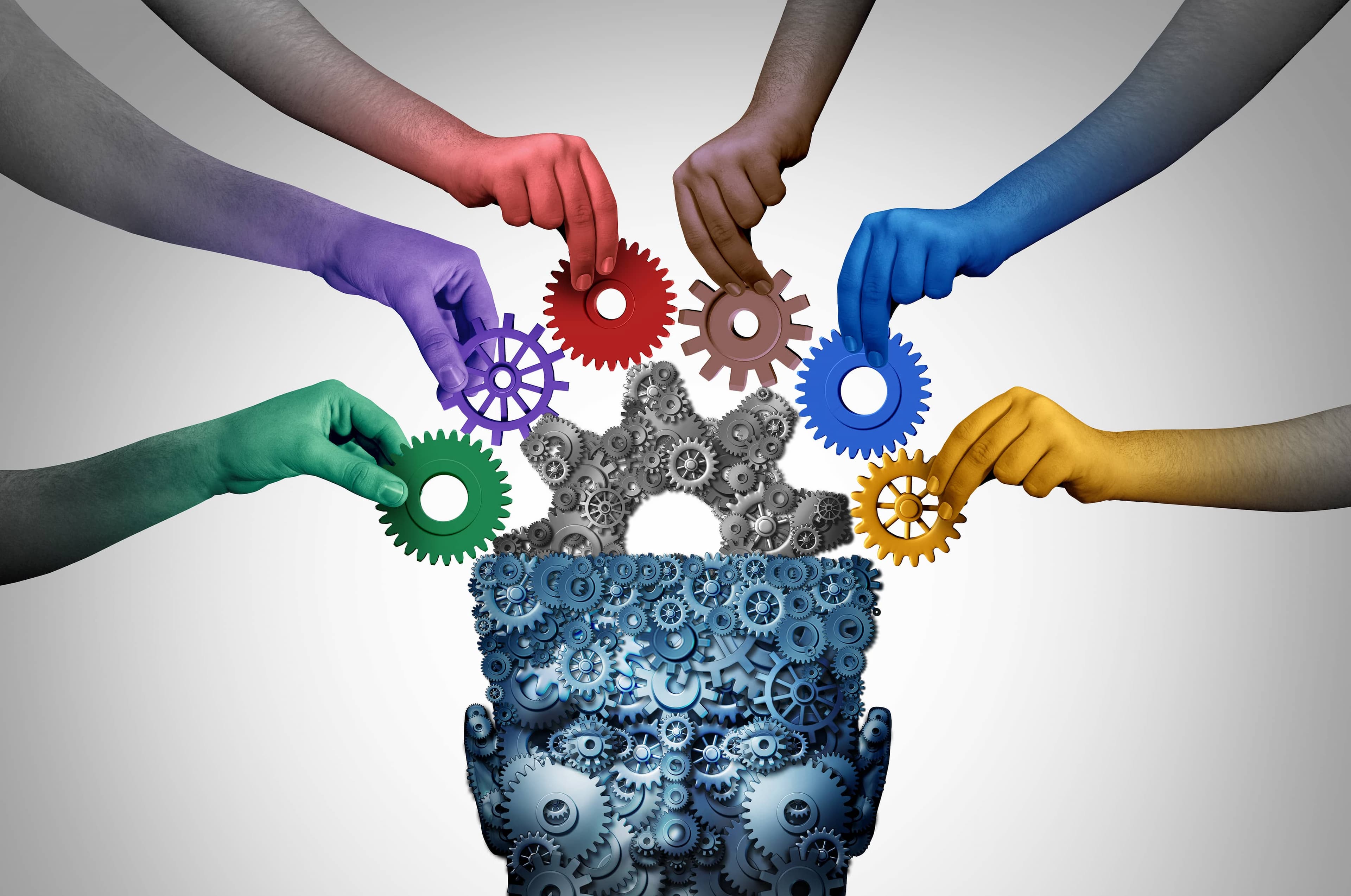I don’t see being autistic as having a disorder. Instead, I look at it as a very positive thing. From a young age, it has helped me direct a laser-like focus on achieving my goals, explains Nick Ransom, a journalist and founder of the Neurodiverse Media Community.
I’m proud to be autistic. I think autism makes me a strong analyst, and an asset to teams I’ve worked in. I feel very fortunate to work in the Civil Service, and proud of the encouragement I’ve had here as an autistic person to succeed in my career, says Catherine Bean, a social researcher at the Office for National Statistics.
These are the views of two neurodivergent people who feel valued and included in the workplace. Unfortunately, many others who are on the neurodiversity spectrum do not share such a positive experience.
The National Autistic Society quotes government data showing that in 2021 only 22% of UK adults with autism were employed, a statistic the organisation is campaigning to improve.
Here we look at how companies can reap the benefits of this under tapped population by developing a fully inclusive culture which embraces the benefits and talents of a neurodiverse workforce.
Great minds may not always think alike

An estimated one in seven of us in the UK are neurodivergent, the term which describes people who experience differences in cognitive, sensory, and/or behavioural processing to the ‘average’ person or someone who is neurotypical.
These differences bring plenty of advantages to employers when they are fully understood. But, without the right support, the talents of neurodivergent people may not be evident.
As a result, they typically encounter barriers to progressing in employment, and can be subject to performance management and may even have to leave their job.
Neurodiversity is something that employers have not paid much attention to until relatively recently and is still overlooked in many organisations.
In the corporate world, it was often about tech firms which recognised early on the exceptional skills that people on the autistic spectrum could bring to their business enabling them to thrive in roles ranging from computer programmer to software engineer.
With some additional effort and job design, however, neurodivergent individuals can be very fine workers in any industry.
As companies rethink their approach to conditions such as ADHD, dyslexia and autism, people professionals are ideally placed to champion the positive impact an inclusive neurodiverse workforce can have on all organisations.
What is neurodiversity?

The word neurodiversity refers to the variety in how people think, process, learn and behave. Neurodiversity is an umbrella term encompassing several very different diagnostic labels including:
Autism – differences in how people communicate and interact.
Attention Deficit Hyperactivity Disorder (ADHD) – categorised as inattentiveness, hyperactivity and impulsiveness.
Dyslexia – a learning difficulty that mainly causes problems with reading, writing and spelling.
Dyspraxia – a condition affecting physical coordination.
Dyscalculia – a condition that affects the ability to acquire arithmetical skills.
Dysgraphia – a neurological disorder that impairs writing ability and fine motor skills.
Tourette’s syndrome – a neurological condition characterised by multiple tics and sounds.
Neurodivergent people, even those with the same diagnosis, can experience a wide range of symptoms. Those with ADHD, for example, can be constantly restless while others seem lost in their own worlds. Rarely are two cases the same.
What it means to be neurodivergent

Neurodivergent people often experience differences in mental function, learning styles, sensory processing, communication styles and behaviours. They might struggle with social interactions or the ability to work effectively in a group.
One common thread running through neurodivergence is a heightened sensitivity to noise and bright lights.
Professor Amanda Kirby, author of Neurodiversity at Work, believes there is a gap over what neurodivergent traits and conditions look like.
Interviewed on the BBC’s Business Daily programme she explains: “It’s really important that employers understand and recognise neurodiverse people, all these terms and conditions - dyspraxia, ADHD, autism, dyslexia - often overlap.
Each person will have their own unique picture of strengths and challenges. Most problems happen in the workplace because we don’t get adjustments or support in place in time.”
A first indication that a person may be processing things differently from their peers is often seen at school where teaching and learning styles are heavily dependent on verbal communication.
This may put neurodivergent people at a disadvantage and they find it difficult to keep up with the pace of learning.
Strengths and challenges for neurodivergent people

Alternative thinking styles can be associated with some unique strengths which can be very valuable in the workplace. These might include an ability to spot patterns and trends, a capacity to process information at speed and analysis of data.
Being autistic, for example makes civil servant Catherine Bean a strong analyst who is good at coding and problem solving. Journalist Nick Ransom believes his “obsessive mindset and lack of real motivation to socialise accelerated his career in a way that would not have been possible if he had other interests.”
On the other hand, many neurodivergent people experience immense challenges at work. Not knowing where to sit in a hotdesking office, for example, might be very stressful for someone who is autistic. A busy, noisy office can be a difficult environment for someone with ADHD.
A person who has dyspraxia might struggle with self-organisation. Working life can be overwhelming for someone with one or a cluster of neurodiverse conditions if they are not recognised by their employer.
Even though there is greater awareness of neurodiversity, many people fear they will be stigmatised or face discrimination if they disclose their condition at work.
As a result, they try to conceal their symptoms and just try to cope which can affect their performance. Job interviews can be particularly challenging.
As workplaces and recruitment practices are still usually designed for neurotypicals, organisations are not making full use of a valuable talent pool or enabling everybody to perform at their best.
How businesses can become more inclusive

Rethinking workplaces and the way all people can be best accommodated and allowed to flourish depends on a greater awareness of neurodiversity.
The CIPD has published a guide on Neurodiversity at Work, so businesses can learn more about neurodiversity, the benefits for organisations and how to support neurodivergent people to be successful at work.
As well as including case studies on best practice, the guide lists several top tips on how to build an inclusive neurodiverse workplace including:
Senior leadership advocacy - make it clear that your organisation takes neurodiversity seriously.
Awareness training – educate colleagues so they are comfortable talking about neurodiversity. Training can help prepare your team to respond sensitively to a colleague disclosing as neurodivergent.
Ensure all communication is clear and understood.
Consider the office environment – many aspects of a typical working environment can act as barriers that prevent neurodivergent employees from performing at their best. Common issues to consider include:
Office lighting – bright office lights can contribute to sensory overload.
Noise levels – noisy open plan offices can be distracting for some. Consider providing neurodivergent employees with a desk in a quieter area, allowing the use of headphones or being able to work remotely.
Equipment – computer screens can be too bright, and desks may lack items to aid personal organisation.
Paul Graham, Managing Director at Britvic plc, who is a major advocate for supporting neurodiverse people and communities believes it’s not only the right thing to do but it’s also a great business decision.
Making adjustments to help uniquely talented people thrive and produce better work makes a lot of sense to me,” he explains. “In the workplace there is a moral responsibility to give people great working environments and give them equal opportunities but there is also a really sensible business reason that if you get the most out of people you are more likely to be successful as a business.
There is plenty of research that tells you that the more diverse and inclusive businesses are the more creative and innovative and more successful that they will be. The onus is on business to step forward and create those environments, he adds.
These views are echoed in the CIPD guide which warns that given the overall prevalence of neurodivergent people, there are clear risks of not taking steps to ensure inclusion.
“What will it cost you not to get the most out of your employees in terms of productivity, or to lose talent to more inclusive, attractive employers?
What will it mean for your product innovation to miss out on the ‘diversity of thought’ that neurodiversity can deliver, and that other firms are setting themselves up to benefit from?
And what might not understanding the needs of your customers cost in terms of lost revenue, and even brand reputation”, the CIPD asks?
How to design a more inclusive recruitment strategy

One issue that unites those who are on the neurodiverse spectrum is that they don’t do well in conventional recruiting and talent assessments.
If you are looking to be more inclusive as a business, the best place to start is by reviewing your existing recruitment processes to determine if they can be made more accessible.
Tips for improvement

Make recruitment transparent – let candidates know what to expect and what the process involves as early as possible.
Provide details of who the candidate will meet and how long the assessment will take.
Give candidates the option of how they want the information to be provided – for example, text, images, videos, long or short form.
Consider different recruitment methods for neurodivergent people that place less emphasis on interviews and include performance-based tasks
Promote your organisation as neuroinclusive and ask neurodiverse people to apply.
Inclusion isn’t just nice, it’s necessary

Neurodiversity is an important and often ignored aspect to diversity at work.
But recent research drawing upon data from more than 27,000 employees across industries in 16 countries by Boston Consulting Group (BCG) found that improving inclusion for all delivers enormous business value.
When employees believe that diversity, equity and inclusion (DEI) programming is a priority in the workplace, the number of all employees who are happy increases by 31 percentage points and the number of both women and men who feel motivated increases by nearly 25 percentage points.
Done right, inclusion positively changes the workplace experience, and not just for minorities and marginalised groups: inclusive cultures benefit all employees. Inclusion is a win-win for businesses and employees – and it’s the right thing to do,” the report states.
Creating an inclusive work environment where people feel open and comfortable is key to preserving a happy and successful workforce.
While neurodiversity cannot be accommodated by a one-size-fits-all approach, employers who have systems in place to provide an empathetic environment for neurodivergent people will be in the best position to attract and retain talent.

